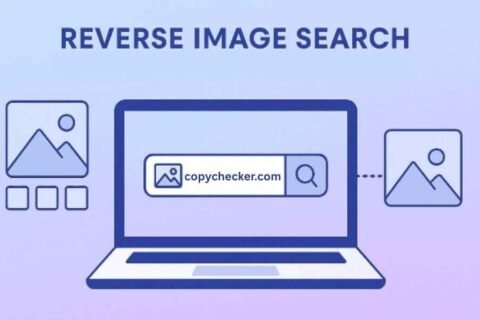Table of Contents:
- **Introduction**
- **What is a Brand Strategy?**
- **Importance of Brand Strategy for Startups**
- **Important Components of a Powerful Brand Strategy**
- **How a Brand Strategy Impacts Your Startup’s Growth**
- **Steps to Building a Solid Brand Strategy**
- **Frequently Asked Questions (FAQs)**
- **Conclusion**
- **Key Takeaways**
Introduction:
Starting a business is exciting, but have you ever thought about what makes some startups stand out while others fade away? **A strong brand strategy** can be the answer. Without a solid brand strategy, even the most innovative startup may struggle to connect with customers. So, why is brand strategy so important for startups?
What is a Brand Strategy?
At its core, a **brand strategy** is a long-term plan for developing a successful brand that connects with your target audience. It goes beyond a simple tagline or logo. Your brand strategy includes your company’s values, personality, and the promise you make to your customers.
Importance of Brand Strategy for Startups:
“Do startups really need a brand strategy?” one may think. The answer is a resounding yes. Here’s why:
- **Differentiation**: In a crowded market, a solid brand strategy helps your startup stand out from competitors.
- **Customer Loyalty**: A well-defined brand fosters trust and emotional connections, keeping customers loyal.
- **Consistency**: It provides consistency in messaging, tone, and visuals across all platforms, from social media to email marketing.
- **Attract Investors**: Investors are more likely to fund a startup with a clear, compelling brand.
- **Growth**: Startups with strong branding grow faster by attracting the right audience.
Important Components of a Potent Brand Strategy:
Here are the key components your startup needs to create a strong brand:
1. **Brand Purpose**:
– Why does your startup exist? Define your startup’s purpose, not just what you sell.
2. **Target Audience**:
– Know who you’re speaking to. Create customer personas that detail your audience’s interests, behaviors, and pain points.
3. **Brand Positioning**:
– What makes your startup unique? Position yourself in the market in a way that resonates with your audience.
4. **Brand Personality**:
– Is your brand fun, professional, or friendly? Define how your startup will communicate, not just what you’ll say.
5. **Visual Identity**:
– The message and character of your startup should be reflected in your logo, colors, and typography.
6. **Brand Voice and Tone**:
– Whether your startup is playful or formal, be consistent in your tone and voice across all platforms.
How a Brand Strategy Impacts Your Startup’s Growth:
A strong brand is like a magnet that attracts customers and keeps them coming back. Here’s how:
– **Increases Trust**: People are more likely to buy from a startup they trust. A clear and consistent brand builds that trust.
– **Builds Emotional Connections**: Customers are more inclined to make repeat purchases when they feel a connection to your brand.
– **Boosts Word-of-Mouth Marketing**: A unique brand strategy gives people a reason to talk about your startup, creating organic growth.
– **Enhances Brand Loyalty**: Consistency in your branding helps build loyalty, turning one-time buyers into long-term customers.
Steps to Building a Solid Brand Strategy:
1. **Define Your Mission and Vision**:
– Clearly state the goal and vision of your startup.
2. **Research Your Competitors**:
– Understand your competitors’ branding and find your unique differentiator.
3. **Identify Your Target Audience**:
-Learn about your target market, their needs, and how your firm can meet those needs.
4. **Create Your Brand Identity**:
– Create a voice, tone, and personality for your brand. Be consistent across all touchpoints.
5. **Design Visual Elements**:
– Your logo, color scheme, and typography should reflect your brand’s personality and appeal to your audience.
6. **Maintain Brand Consistency**:
– Ensure your message remains consistent across all platforms, including social media, website, and emails.
7. **Measure and Refine**:
– Continuously track your brand’s performance and adjust strategies as needed.
Conclusion:
A well-crafted **brand strategy** isn’t just for established companies—it’s essential for startups too. Establishing a robust brand from the outset is crucial for ensuring sustained prosperity. Remember, your brand is more than just a logo—it’s your startup’s identity, voice, and promise to your customers. Invest in your brand now to set your startup apart and secure future growth.
Key Takeaways:
– The development of your startup and consumer loyalty depend on your brand strategy.
– Focus on differentiating your brand and maintaining consistency.
– Your brand is your startup’s identity—make it strong and memorable.
Frequently Asked Questions (FAQs):
**Q1: How can I differentiate my startup’s brand from competitors?**
A: Focus on your unique value proposition. What makes your startup different? Use that to shape your brand message.
**Q2: Can my startup’s brand evolve over time?**
A: Yes, as your startup grows, your brand can evolve. Just ensure any changes remain aligned with your core values.
**Q3: What if I don’t have a big budget for branding?**
A: You don’t need a big budget to create a strong brand. Focus on authenticity and consistency, and leverage free tools and platforms.












































